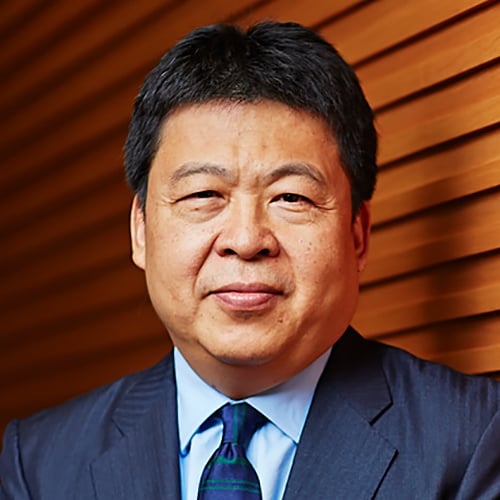The agreement signed by state owned rolling stock company CRRC Zhuzhou Locomotive Co to acquire Vossloh Locomotives will give it a long sought-after foothold in the German and EU market - and is a highly unwelcome move from the point of view of the dominant European players Siemens and Alstom.
Vossloh Locomotives is based in Kiel, northern Germany, and only completed a new production facility in March 2018. It specialises in producing small and medium sized diesel and dual-mode locomotives for light main line and shunting duties.
In an August 26 statement, parent company Vossloh AG said that it had signed a contract for the sale of its locomotives business unit. The agreed purchase price is still subject to adjustment at the closing date, depending on the development of various balance sheet positions, and is projected to amount to a low single-digit million figure.
Completion of the sale of the Kiel locomotives business would conclude Vossloh’s withdrawal from the supply of above-rail equipment. The company has gone through a restructuring process which began in 2015, under which it intends to focus solely on supplying equipment for railway infrastructure applications. Since 2015, it has sold its Rail Vehicles and Electrical Systems business units to Stadler and Knorr-Bremse, respectively.
However, this latest deal is likely to be controversial - and could even be blocked by the German or EU competition authorities.
In September 2017 Siemens of Germany and Alstom of France announced a plan to merge their rail operations, and one of the reasons given was to create a European heavyweight capable of competing globally with CRRC.
But in February this year that deal was blocked on competition grounds by the EU Competition Commission led by Margrethe Vestager, which in its ruling played down the threat from CRRC.
Commenting on the case in February, Johannes Laitenberger, Director General for Competition at the European Commission, noted that one of the main arguments the parties put forward as to why the Commission should clear the transaction was the reference to competition from Chinese companies, in particular the state-owned enterprises CRSC and CRRC.
The Commission therefore examined the question of whether CRSC or CRRC have an impact on competition in the relevant markets today or at least in the foreseeable future.
According to Laitenberger, the answer to this was clear: today and in the foreseeable future, such a competitive constraint has neither a current nor a potential impact.
CRSC’s signalling-system products are not yet on an equal footing with those from Siemens or Alstom. In contrast to China, signalling technology in Europe is mainly tendered for existing routes. Chinese producers have virtually no experience with comparable projects. In China, mainly new lines are being built where the installation of signalling technology is less demanding. Accordingly, CRSC has never even tried to participate in a tender in Europe.
He added that the market for high-speed trains is characterised by high barriers to entry, particularly in Europe. Trains must comply with a variety of national and European rules before they can be used in Europe. CRRC has not sold a single high-speed train outside of China. In all likelihood, this will not change any time soon. A company’s track record - the successful implementation of comparable projects - is an essential criterion in tenders for high-speed trains.
However, CRRC will lack such a track record for many years to come with regard to European projects.
In conclusion, he said that the Commission's detailed and well-founded concerns were ultimately only countered by speculative assertions about the role of Chinese competitors in the future, for which the Commission could not find enough evidence.
Perhaps these or other Chinese companies will be successful in relevant markets beyond China, he added. Perhaps they will even become strong competitors of Siemens and Alstom. But no one, not even the parties, has at this stage been able to convincingly explain to the Commission why a merger, with the resulting loss of competition, would be necessary to prepare for such competition in the future.
This ruling was viewed as naive within European industry, which sees a future threat from China within the rail sector. And it makes this latest deal all the more irritating from the point of view of Siemens and Alstom, which will see the factory in Kiel as the base from which CRRC will take on the established European rail groups.
It also comes at a time when German Federal Minister for Economic Affairs and Energy Peter Altmaier has been pushing for an industrial strategy, and support for so called European champions.
Vossloh Locomotives is a small company, with annual sales of only €200 million and 481 employees. Diesel locomotives is a niche sector in which Vossloch Locomotives has a significant 25% share of the EU market.
The Kiel operation would give CRRC a bridgehead into the German and EU rolling stock supply sector. Although CRRC is the world’s largest player, it has up to now won only small orders in the EU. CRRC would likely convert the Kiel factory to produce other products such as electric locomotives or multiple units.
In 2017 CRRC made a move to acquire Skoda Transportation in the Czech Republic, which created controversy. CRRC was eventually beaten by a group of local investors led by PPF Group.
This latest deal for Vossloh could yet be blocked. As politicians in Germany return from their summer holidays this week, the Vossloh sale is likely to be discussed at the Economics Ministry.
A new Commission will also be put in place in September and October, ready to take over for a five-year term on November 1, and it remains to be seen whether this new Commission will take a tougher line on Chinese investment in important segments of the EU infrastructure market.









